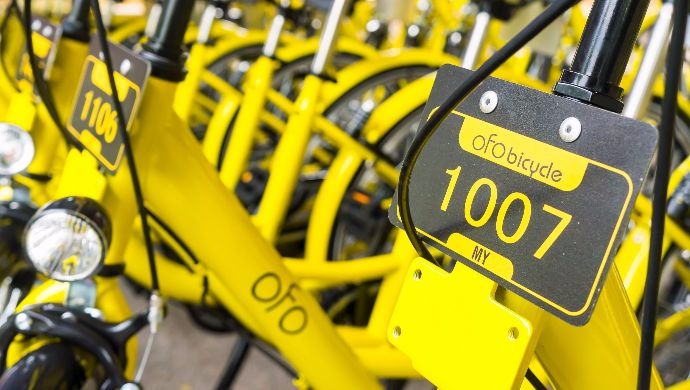How Nuren Group, Fave, and DahMakan are shaking up the Malaysian digital marketplace ecosystem

As with all traditional forms of trade, when it comes to eCommerce it is important to gauge consumer behaviour. This ranges from what consumers want to what consumers need, and bridging those interest points with capturing a market that’s actually willing to make a purchase.
This is the beauty of eCommerce: it revitalises conventional markets by introducing new and innovative ways to deliver products and services anchored on wants and needs. More importantly, eCommerce puts these products and services in a digital platform, making it accessible and convenient to use.
In the attempt to harness the power of digital as a means of powering Malaysia’s growing economy, three startups are coming up with ways to innovate the marketplace through smart solutions and to revolutionise customer experience.
Digital platforms enable businesses to cut costs and offer goods affordably
One problem that’s being solved by a startup is is the need for healthy meals amid a fast-paced and busy lifestyle. Because of society’s growing demands, people have less and less time to prepare food for their daily meals. DahMakan, a startup from Malaysia, seeks to solve this problem by providing hassle-free, high quality everyday meals to make people’s lives easier.
They achieve this by delivering affordable and ready-to-eat meals at the push of a button through their purely digital platform, cutting out traditional F&B business costs. This allows them to regulate their prices and make sure their products stay affordable.
“Starting in Malaysia was the best choice we made. There is so much support from the ecosystem and people are generally curious and super supportive of new ideas and concepts. Malaysia is truly outstanding compared to the many other countries I’ve visited,” said Jonathan Weins, CEO and co-founder of DahMakan.
Weins credits much of his success to the collaborative help he has received from various entities. He enthusiastically adds, “the ecosystem and government linked organisations such as Malaysia Digital Economy Corporation (MDEC) are doing an outstanding job, and we are excited about the many upcoming initiatives!”
Also read: How Malaysia helps bolster the less glamourous side of tech
DahMakan has expanded to Thailand with their Thai office growing twice as fast as the one in Malaysia. Weins said, “The best way to deal with cultural differences and customer types has been to approach a new country with a completely open mind and without any assumptions.”
The food delivery startup was part of Y Combinator’s summer 2017 programme – the first-ever Malaysian company to participate in Y Combinator. It has since raised $1.3 million seed round in 2017, and a $2.6 million pre-series A in February this year.
He added, “we are about to close another funding round which will give us additional capital to continue attracting incredible talent, and to make high quality food accessible for everyone.”
Important for startups to have a strong sense of identity
Another thriving Malaysian startup is the Nuren Group, the largest female engagement platform in Southeast Asia.
Guiding women through their journeys of wedding and motherhood, Nuren Group operates content-driven marketplaces, which enable thousands of small, medium, and large global brands to sell their products and services. On top of that, they also run digital content and activation campaigns with their community of female influencers and celebrities.
The idea behind the company was simple: three years ago, they started as a wedding platform. But as their customers aged and shifted to different interest points (from wedding to motherhood), they knew there was an untapped market waiting to be addressed.
Their platform allows the company to retain existing clientele through a simple paradigm shift. What had to be consistent was making sure that their products and services always empowered women and catered intrinsically to their best interests.
“There are many opportunities and challenges ahead for eCommerce. Domestic players are facing competition from marketplaces that heavily subsidised and offer cross border cheaper OEM products. Merchants and platforms like us will have to master the combination of showrooming and webrooming, events, product demos, in-store experiences – focusing on after sale customer service,” said Petrina Goh, CEO and co-founder of the Nuren Group.
“We also foresee ecommerce companies that use data to predict consumer spending and trend setting to perform above the peers,” she added.
Nuren Group currently maintains a solid community of over 1,000,000 moms, 5,000 wedding businesses and 1,000 baby’s and children’s brands. With their regional presence in Singapore, Malaysia, and Thailand, they are assessing borderless transactions that enable their sellers to sell and fulfill across the countries.
Supporting the “old” by harnessing the new
The third startup we spoke to doesn’t appear to fit the eCommerce model that we know, but they are also certainly revolutionising the market in their own unique way.
Fave is a startup that focuses on helping offline businesses to succeed, by bringing them to new customers (Fave Deals), retain their existing customers (FavePay, Fave stamp cards), and reengage customers who haven’t come back to their stores, as well as leverage on their customers’ behaviour, trend and demographics. In addition, Fave provides comprehensive merchant solutions (FaveBiz) to enhance their understanding their businesses, and drive further growth.
Essentially, Fave digitally optimises brick and mortar retail stores that do not have the understanding and the capacity to digitalise their business practices. Doing this helps offline businesses to take advantage of data and tech in gathering new customers and retain old ones.
“It’s been great experience so far. We have built up a team of 200 people in Malaysia where all our products, technology, innovation, data, and so forth are performed from Malaysia for the region,” said Chen Chow Yeoh, co-founder of Fave, which has expanded its brand to Singapore, Indonesia, and built some presence in the Philippines, and Hong Kong.
“MDEC has been instrumental in helping us through this journey, especially in facilitating the process to enable us to bring in quality knowledge workers to join the team here, and make Malaysia our hub,” he added.
As of today, Fave is doing over 100 million USD worth of sales per year within its first two years of starting up. They are currently gunning to find breakthroughs that will score them their first billion-dollar sale.
Next steps for Malaysia’s eCommerce
All three startups agree that some work still needs to be done. Goh said Malaysia could provide more support through projects, endorsements, and recognition. “There should also be more collaborations or partnerships between conglomerates and startups to support innovation and growth,” she added.
This sentiment is echoed by Weins who believes that better terms should be made between investors and startups. He said the current investment frameworks tended to be unfair, which reflects poorly on how money is being funnelled into businesses – and the kind of businesses that are willing to accept those investments.
Also read: Navigating through Southeast Asia’s startup industry the Malaysian way
“Investment terms should be standardised, similar to other global ecosystems. I have heard from other entrepreneurs in Malaysia about very ‘erroneous’ terms from investors. We have to change this mindset here regarding this,” said Weins.
Yeoh on the other hand thinks there should be more industry-relevant academic training for tech-based professionals at a university level. He believes this would help the pool of talent in Malaysia become more ‘startup aware.’
Ultimately, all three startups are happy with many things that they have experienced in the Malaysian framework. Much of their success derives from support received from other startups in the ecosystem, as well as government-sponsored initiatives under MDEC’s helm.
This paints to a hopeful future for Malaysia’s startup ecosystem, and consequently enhances the positive view of the nation’s vibrant digital economy bolstered by its eCommerce sector.
The post eCommerce: Revitalising conventional forms of trade in Malaysia appeared first on e27.
Source: E27




































 Source: reddit r/singapore
Source: reddit r/singapore








